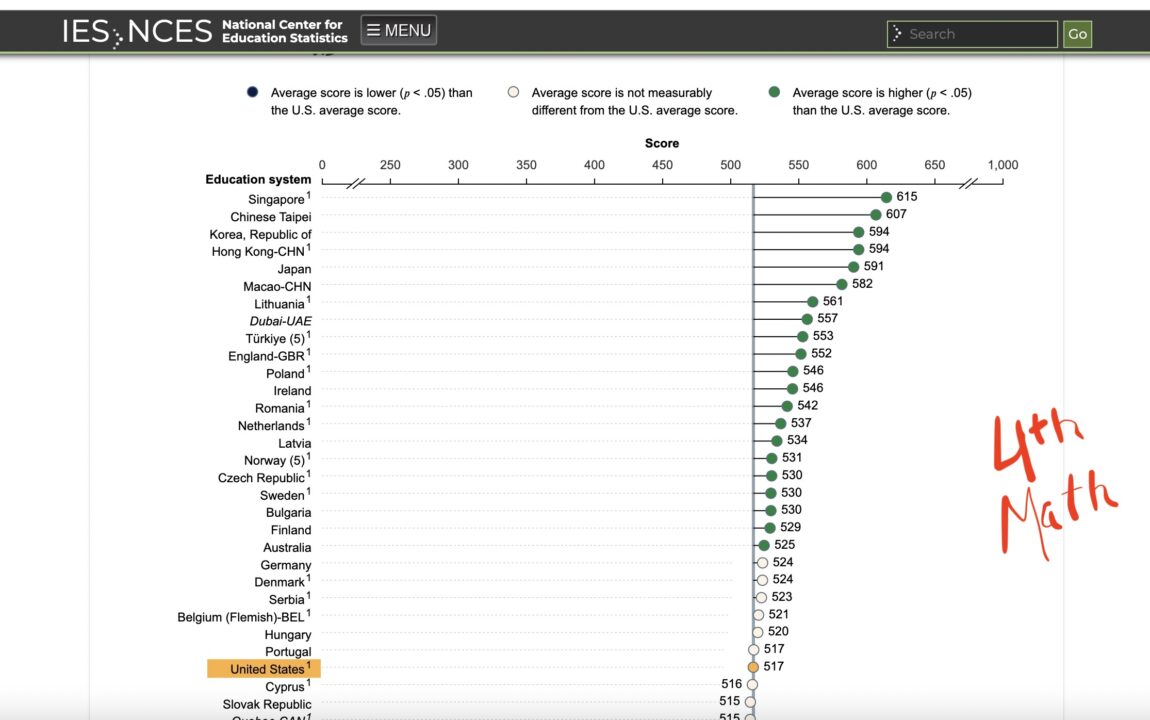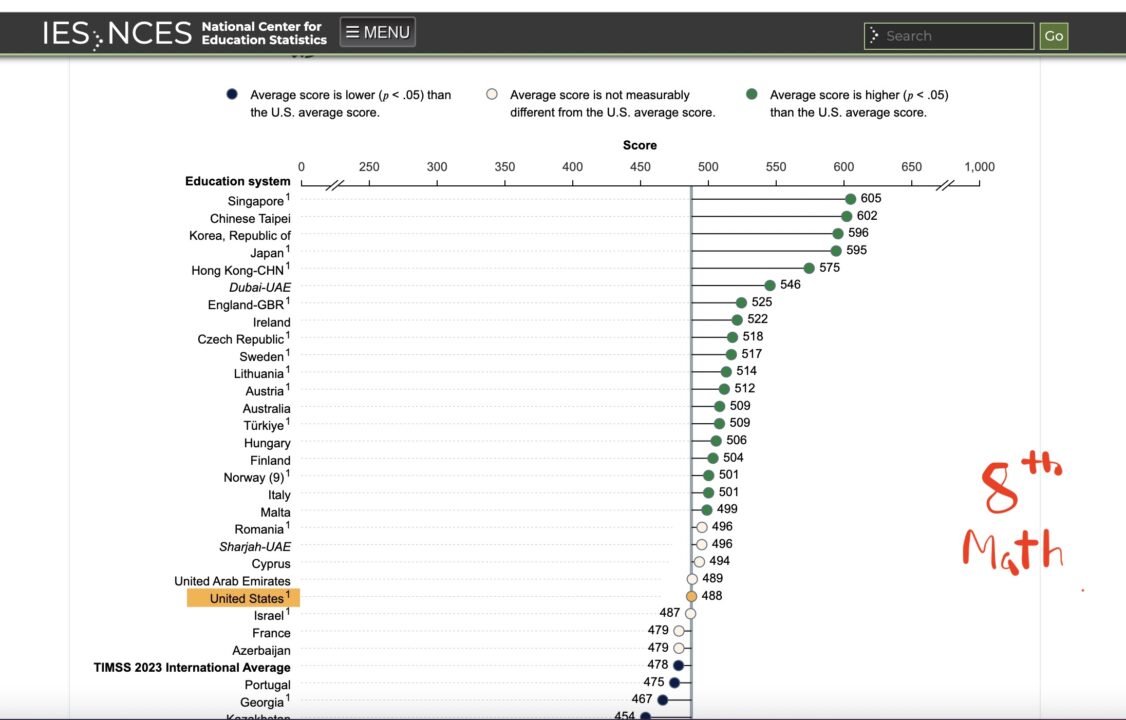From the moment the New Hampshire State Board of Education voted to adopt the Common Core Math Standards in 2010, I knew it would be a disaster. Fourteen years later, we see the proof.
Schools across America still use Common Core-aligned programs in their schools because those math programs align with their state academic standards. Are they forced to use lousy Common Core curriculum in their schools? No. So why do schools continue to fail their students this way? That can be traced to the Common Core State Standardized test. If the state test is Common Core aligned, school administrators feel they must align their curriculum to the test.
Common Core has numerous issues, including the emphasis placed on communication and language. Yes, in math, Common Core has been criticized for not having enough focus on math computation, and too much focus on communication skills. Professor W. Stephen Willson, a Johns Hopkins math professor, explained some of that in his critique of the Common Core math assessment. While many states ditched the Smarter Balanced Assessment, they maintain assessments using the flawed Common Core Standards. That means their tests will include all of the Common Core flaws.
If you look at some of the Common Core-aligned math programs, they are light on quality math instruction and heavy on everything else.
Eureka 2 is a math program used in many New Hampshire schools. Not only is it Common Core aligned, but this math program infuses Social and Emotional Learning along with Fine Art into the math program. Some are asking, where’s the math?
Public schools are no longer focused on teaching academic content, instead they are forced to infuse workforce skills into the classroom. This is done through Competency Based Education. More time is directed to competencies, or workforce skills, which means less time for academics. Students grouped together to collaborate while learning, is a workforce skill that takes time away from a teacher who can instruct the class on math. You can see this on display here. Notice how the teacher gives the grouped students time to chat about what they are learning.
In the video, students engage with their peers in a 45-minute class. There is a great deal time chatting with peers, and not as much time learning from the teacher. With behavior problems increasing in classrooms around the country, putting children in this position can invite all kinds of problems. Many students report that they use this time to chat about topics not related to the subject they are supposed to be learning.
Pedagogy is the method teachers use in the classroom to teach. This can be another problem in a math class. In Eureka 2, the vendor indicates that teachers should be using an “inquiry” approach to learning. That means the students will discover math. There is less emphasis on a teacher instructing the students, and more time on students discovering math on their own. This article on Education Next, written by a teacher, gives you many examples of why this is the wrong approach to learning math. But here we are in New Hampshire, using math programs forcing teachers to use these flawed teaching methods in the classroom.
I’ve tutored students who’ve been in this situation, and I experienced this with my kids years ago when they were in school. Fortunately , I could teach my kids math. But I also decided to remove my kids from that school, knowing it was the worst way they could learn math.
Here are the problems I saw firsthand with my kids, and with the kids I tutored:
1) My son’s friends would call him nightly, asking him to explain the math problems. He’d end up teaching them over the phone since he was somewhat gifted.
2) My son became angry and frustrated at his teacher who was a wonderful person, she was just expected to use faulty teaching methods.
3) The students I taught felt that they were dumb because they couldn’t figure out the problems, and needed a tutor.
4) A great deal of time was wasted on trying to figure out math in the classroom, and at home. This used to be the role of an instructor but now teachers have been sidelined as guides on the side.
5) This killed any future in the math field for these kids. They ended up hating math.
6) In schools now, they have to hire additional staff to make up for the deficiencies. (Math Interventionists)
7) Math teachers and interventionists are now looking for quality programs to build the skills that Common Core doesn’t focus on.
8) This of all drives up budgets.
9) Parents want to help their children but cannot figure out the confusing math strategies. Check out this video.
10) This document explains what’s missing, muddled or delayed in the Common Core.
11) Here is an article from NPR about the lead writer of the Common Core Math Standards, Jason Zimba, and how he has to tutor his own child at home because the math isn’t working for his children.
12) Here is a video of Jason Zimba questioned about how the Common Core does not prepare students for STEM (Science, Technology, Engineering, and Math) programs once students complete k-12 schooling.
Even children who score proficient on State Standardized tests might not be proficient if they attended school in one of the top-performing countries. For instance, Common Core Math puts students on a path to Algebra I by 9th grade. That is about 2 to 3 years behind Singapore students. So, if your school or your child scores proficient, the best thing you can do is have them tested outside the school system. Check with Homeschool families to see what achievement tests they use for their children. They tend to use quality math programs that put their children ahead of those in public schools.
After 14 years of this nonsense, the explanation stays the same. All of these reasons ,if left ignored, will cause your children to fall behind in math. You can instruct them at home with an intensive program that keeps them on par or hire a tutor.
RESULTS FROM THE INTERNATIONAL TEST IN MATH AND SCIENCE TIMSS TEST
4th Grade and 8th Grade results:


